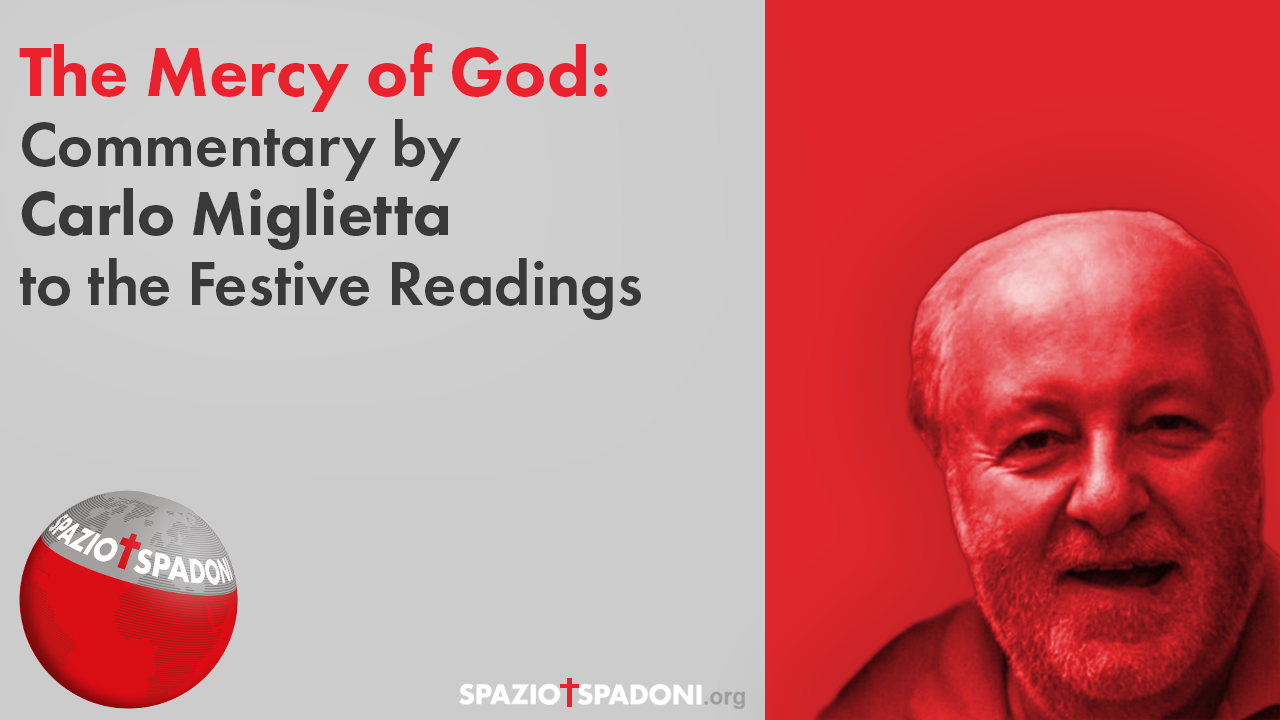
I Sunday Of Lent B – Covenant With God Calls Us To Conversion
Readings: Gen. 9:8-15; 1 Pet. 3:18-22; Mk. 1:12-15
The theme linking the Lenten readings of Year B is that of “Covenant”: the Hebrew berìt and the Greek diathèke indicate pacification, reconciliation, communion, sometimes even unilateral, but always demanding a response. In the Latin ethico-legal mentality, it is restoration of the order violated with sin; in the Greek, it is fulfillment of creation, overcoming the abyss existing between Creator and creature, between the Infinite and the finite; in the Hebrew, it is covenant of friendship between God and man.
God makes covenant with us
Today’s passage introduces us to the Covenant with Noah (Gen. 9:8-15): it is a late passage, from a Jahwist and especially Priestly source, the summit of Old Testament theology: it is a cosmic Covenant, also involving all animals and the whole earth (vv. 9-11.16-17); it is God who freely takes the initiative, while Noah and the earth are passive (vv. 9.11.17; 15.16; 12; 13a): only God’s intervention saves creation from destruction.
Such global redemption is accomplished in Jesus Christ, whose “blood, the blood of the covenant,” is “poured out for many” (Mk. 14:24): Peter proclaims this to us in the second reading (1 Pet. 3:18-22), reminding us that Jesus proclaims deliverance even to the ungodly who in Noah’s day refused to believe (vv.19-20 ): and the water in which, on the ark, Moses and his people found escape is a figure of our baptism (v.21), by which we join Christ’s death in order to participate in his resurrection (Col 2:12-13; Rom 6:4-5).
“Do not give in to temptation”
In the Gospel Jesus is tempted: it is necessary to distinguish between “temptation-trial” and “temptation-insidious,” both meanings possible in the Greek peirasmós used by the evangelists. The test may have as its subject God sifting the faithfulness and purity of man’s faith: think of Abraham, invited to sacrifice Isaac, the son of divine promise (Gen. 22), of Job, of Israel harshly “corrected” by God in the wilderness “as a man corrects his son” (Deut. 8:5). It is an education in faithfulness, selfless giving, pure love without ulterior motives.
Different is “temptation-insidiousness,” which aims at man’s rebellion against God and his law and which, at first glance, should have Satan or the sinful world as its root… Moral evil must be traced back either to human freedom, with a role for the tempter par excellence, Satan.
But consoling in this regard is a phrase from St. Paul’s First Letter to the Corinthians: “God is worthy of faith, and will not allow you to be tempted beyond your strength, but together with the temptation, he will also give you the way out of it so that you can endure it” (1 Cor. 10:13).
Jesus truly experiences the difficulties of men. Jesus is tempted, and throughout his life he will be continually tempted, but by overcoming temptation he is the new Adam, the fulfilled man.
As Adam in the earthly Paradise was with the ferocious beasts, and in peace coexisted with them, so here Jesus is the perfect Adam: to describe him the Evangelist tells us that Jesus, like Adam in Paradise (Gen. 2:18-20), is with the ferocious beasts and with the Angels.
Called to conversion
The Gospel ends with a call to conversion, to join Jesus, in whom the Kingdom of God has come near us (Mk 1:15). The covenant proposal is a call to conversion, to metànoia, that is, to a radical change in thinking, to a complete turnaround in our lives. But let us remember well: conversion is not just intellectual adherence, but involvement of the whole person, a complete change in the way of life. In order to participate in the covenant-salvation that is fulfilled in Jesus the Messiah, the baptized are therefore powerfully called to a radical rethinking of their way of life, both at the individual, ecclesial, and social levels…
